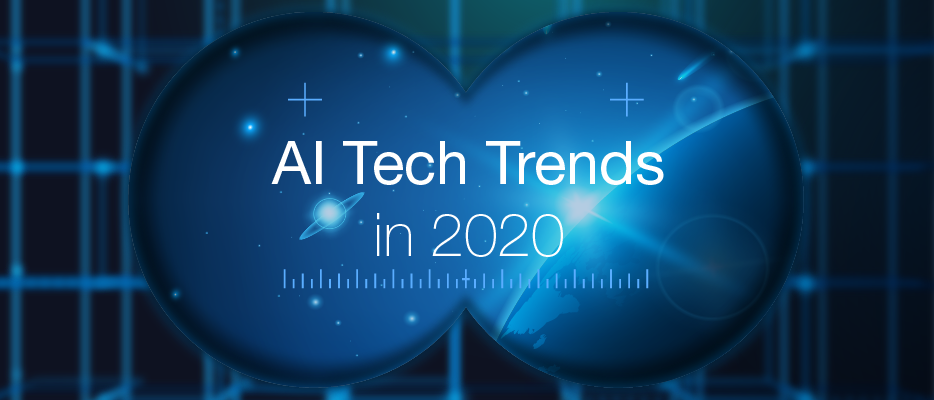5 AI Trends to Watch in 2020
January 17, 2020

Artificial Intelligence (AI) is embedded in our everyday lives. AI technologies have become so advanced that it’s not uncommon nowadays to be in contact with them without fully realizing it. In the enterprise, AI solutions such as Process Intelligence (IQ) have witnessed a staggering adoption rate and have significantly transformed how processes are monitored and managed across an organization. As AI continues to scale in 2020, it will continue to have a significant impact on our lives, both in the workplace and outside of it.
1. AI regulation will evolve.
AI is becoming more advanced and being leveraged for a continually expanding array of use cases – across industries, functions, and geographic markets. As it does, it is evolving into previously uncharted legal territory. While AI can profoundly impact people’s lives for the better, when the technology is misused or misrepresented, it can have harmful consequences.
In 2020, we will see more regulation taking shape and becoming increasingly standardized. Across the globe, legal regulations of AI are becoming prevalent. Europe recently enacted regulations that require companies to disclose when a consumer is in contact with a robotic system and not a human being. In the United States, California passed legislation prohibiting the use of AI to deceive or influence a consumer.
2. Digital workers reshape the workplace.
According to a new IDC research, the contribution of digital workers – such as software robots and AI – will grow by over 50% by 2022. These digital workers will significantly reshape workplace dynamics. They will eliminate many of the monotonous and tedious tasks that employees often dread, freeing up time and resources for more social and creative functions. These digital workers will play a role in streamlining processes, enhancing operational efficiencies, unlocking meaningful opportunities from data and uncovering revenue streams.
Most importantly, perhaps, is that digital workers may potentially help create a more engaged and fulfilled human workforce. By taking over repetitive clerical tasks, these digital robots will enable teams to reconfigure job functions and focus on higher-value tasks, empowering employees to shape their roles in ways that are more meaningful, engaging, and impactful.
3. Process intelligence becomes a standard.
As more complex digital transformation technologies are deployed, the ability to monitor operations across every facet of the organization becomes increasingly important. Individual technology systems that govern very specific functions (CRM, ERP, CMS, etc.) only provide visibility into the processes that their platform controls. None of these standalone systems can provide insight in a holistic and in-depth manner.
To attain this visibility, organizations will need to leverage process intelligence technologies that provide a comprehensive, accurate, and real-time view of all processes – across departments, functions, personnel, and even different locations. In the coming years, more businesses will realize that process intelligence enables organizations to better understand and more effectively manage their processes end-to-end, and these technologies will subsequently become a standard in the enterprise.
Download your free copy of our eBook, Going Beyond Business Intelligence & Process Mining, to learn more about ABBYY Process Intelligence.
4. The utilization of AI will proliferate – from the consumer side to the enterprise.
On the consumer side, we experience AI in our daily lives in many forms, often without knowing it’s being used. In the enterprise, for those who are the owners of processes and customer experiences, their access to this technology will increase.
AI will become much more easily consumable in the workplace. Business users will soon have access to internal marketplaces of robots and other easy-to-use automation tools available to people of all technical proficiencies. These new platforms will play a role in improving the way that employees get work done.
5. Digital IQ will be pivotal in every organization’s digital transformation.
Digital IQ, as the measurement of how well an organization can understand its business processes from a variety of critical perspectives, will play an increasingly important role in every digital transformation strategy as more enterprises come to the realization that they must have visibility into their operations.
Digital intelligence solutions will help organizations increase this business-critical ability by optimizing automation initiatives and complementing platforms like RPA and BPM. In 2020, more organizations will adopt digital intelligence technologies into their overarching digital transformation initiatives, as enterprises realize that these solutions illuminate paths to improved customer experience, reduce operating costs and sharpen competitive advantage.
